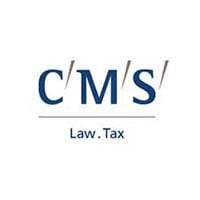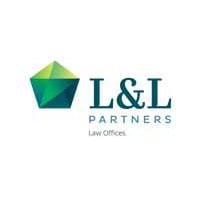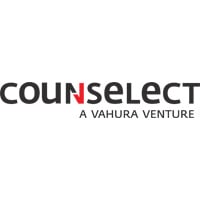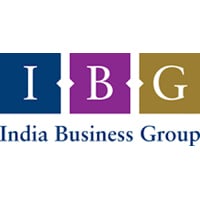
India Teams 2019

| The Indian Hotels Company








The Indian Hotels Company
Can you briefly explain how the legal team is structured, highlighting key individuals and their role within the department? The legal function at IHCL is led by Rajendra Misra, executive vice president and general counsel. He is a member of IHCL’s executive committee, and also a non-executive director on the board of TajGVK Hotels & Resorts. He has undertaken the “Leadership in Corporate Counsel” programme from Harvard Law School. Misra’s legal team consists of two vice presidents and one associate vice president, apart from other in-house counsel and support staff. One vice president is responsible for partnering with the operations team, and another vice president is responsible for partnering with the real estate and development team. The associate vice president heads the Delhi branch office, and is responsible for all legal issues and business development matters relating to the North and East regions and designated international regions. In addition, the asset management function is led by a person of the rank of vice president, who is responsible for acquisitions, asset monetisation and re-negotiations.
The three-member legal team at IHCL’s subsidiary Roots Corporation, which runs the ginger brand of hotels in the lean luxe segment, has a dotted line reporting to Misra. The team has two members in Mumbai and a lone member in Delhi. Can you describe some of the challenges your team faces by working for a distinguished brand in India’s hospitality sector? IPR protection: The iconic Taj Mahal Palace hotel in Mumbai is the IP of IHCL. IHCL holds a trademark registration in respect of it. Sometimes we come across blatant violation of this IPR by third parties. In all such cases, we have issued legal notices to third party restaurants, builders and other organisations who were found using the IPR in an unauthorised manner. The IHCL legal team has successfully ensured that unauthorised use in all such cases is prevented. Further, the team has been able to negotiate licensing deals with reputed commercial organisations, licensing the IPR to them and earning revenue for IHCL. Data privacy: At IHCL, the guest is God – “Atithi Devo Bhavah”. The guest is supreme, as is his data. Therefore, IHCL takes all possible measures to ensure data privacy and protection. It has made substantial investments in terms of money and man hours to ensure that the guest data is properly archived, used, and protected. The legal team plays a key role in this area, partnering with the IT and marketing/sales teams to ensure that IHCL is at all times fully complaint with the regulations, and the guest data remains fully protected. Not just that, the legal team has curated an LMS e-learning module to educate non-legal employees of the organisation on this critical subject. Challenges of growth: IHCL is currently on a growth trajectory. We have signed up many new deals, much more than what we have done in the past. On the one hand, we have been signing up new management contracts to spread our footprint wider but without making significant investments. At the same time, we have negotiated the IHCL-GIC investment platform deal, enabling us to acquire operating hotels across the country. The fast-paced growth has created a wave in the hospitality industry. It also comes with its own challenges of quicker turnaround times enabling the fact-paced growth. The legal team continuously keeps on its toes to ensure that at no cost the speed is compromised or deals are lost. Does the team use any “legal tech” products
and do you find them a helpful management device? Digital tools form an integral part of the legal management process in IHCL. Our most important contracts are our hotel lease/license/management contracts and it is extremely important to manage and track their lifecycle. In the past, these contracts were managed and tracked through Excel sheets, which has its own limitations. In order to overcome the limitations, we have deployed a contract management software (CMS) to track, manage and archive the hotel contracts. The CMS also serves as a central repository of standardised contract formats, doing away with the concern of inconsistent contract usage across the organisation. We have deployed a litigation management software (LMS) to track and manage the litigations of the company, an IP management software to track and manage the IP of the company, and a compliance management software to track and manage compliance in the company and its hotels. In addition, we also subscribe to ProVakil, which enables real-time tracking of litigation and trademarks. However, our digital journey is not limited to deploying certain off-the-shelf digital tools. We also embarked upon a journey of spreading legal awareness amongst the non-legal colleagues in the organisation by leveraging digital. We have curated e-learning modules (LMS or learning management software) on important legal topics (viz. prevention of sexual harassment, data privacy and protection, competition law, insider trading, related party transaction). The concept and contents of these LMS modules were developed in-house. Thereafter, with the help of Tata Interactive, the content was converted to LMS, which has been deployed in the organisation. The LMS explain legal issues in very simple, non-legal language and with illustrations, making them extremely helpful for spreading legal awareness amongst employees outside the legal department. The LMS modules are audio-visual, involving Q&A, and can be completed by the employees at their convenience. The extensive deployment of digital tools has resulted in better management systems, and risk mitigation. Apart from legal matters, has the team worked on other company initiatives? The legal team anchors the compliance piece for the organisation. The team has deployed a compliance management software to track compliance across the group. The team also anchors periodic audits of compliance, to ensure that gaps in compliance, if any, are addressed. The legal team actively supports the CSR team in their legal and governance matters. In addition, the legal team also acts as an enabler in the efforts of the CSR team to forge MOUs with NGOs in order to execute CSR initiatives. The IHCL group also runs the Taj Public Service Welfare Trust, which is engaged in supporting and providing relief to victims of terror attacks. The activities of the trust are actively supported by the legal team, which also engages in supporting efforts of the trust to raise moneys, by enabling fundraisers.